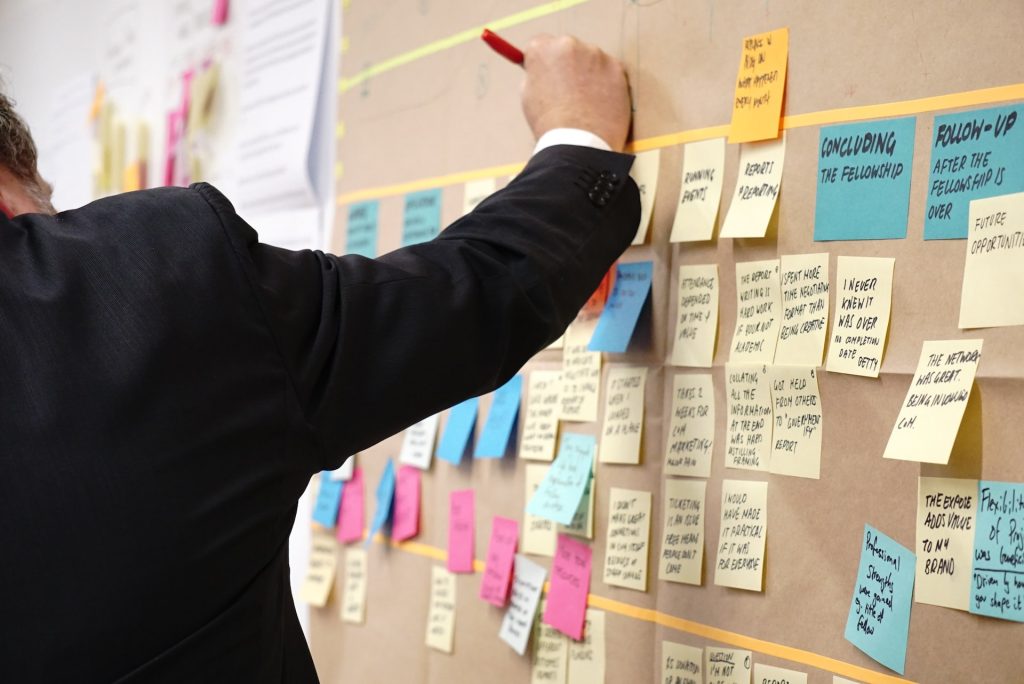Project management is the application of suitable information, skills, methodologies, and strategies to logically organize the activities and resources required to finish a specific project efficiently and successfully. A project management template can help you organize all of your project’s tasks.
The outcome of the project management concept symbolizes the achievement of the project’s defined goals, namely the completion of the project on time and within budget. Here are 8 project management best practices you must know.
1. Setting project objectives
The first and most crucial stage in project management is to have a clear grasp of the project’s objectives. Before beginning any serious work on a project, ensure that everyone has a clear and solid grasp of the project’s scope and objectives.

That is very important as it will allow them to appropriately determine the quantity of work to be done and estimate how long it will take to complete it.
2. Identifying outcomes
After outlining the project’s objectives, define the project’s deliverables. Evaluate them with key stakeholders to ensure agreement on what’s included. There may be a lot of work, but what if it is not what the stakeholders expect?
It is critical to understand what the intended outcome of the project is. That is so that you can save time and execute only what is essential. The results should be documented and shared with everyone involved in the project so that everyone can make every effort to produce them accurately and on time.
3. Project management
The project manager is usually in charge of project management. The project manager must meet with the stakeholders to determine the project budget, resources, and team members.

The project manager should go over the plan with the team members to ensure they understand it and estimate how much effort each of them will need to put in to create a work schedule for the entire team, which should then be shared with the stakeholders.
4. Create a work calendar
Creating a work calendar would go a long way toward keeping track of the project’s progress. It should go according to the schedule, as well as calculate the working hours for each individual in the project.
That is important so that they understand how much work needs to be done by them and when. The calendar can help the whole team stay on track.
5. Regular communication with the team
Making a project plan is not enough to assure its implementation; the project manager needs to engage with the team frequently to understand how much work has been completed and whether it is following what they need to produce.

The project manager and team members, as well as stakeholders, should communicate effectively so that everyone is aware of their roles and performs the appropriate actions as allocated to ensure the project runs well.
6. Monitoring project progress
After starting a project, it is vital to monitor its progress. This is to ensure that everything is completed within the work schedule. Change requests may arise during the project if stakeholders change their minds, and the team must be prepared to deal with them.
Not all change requests could be approved without jeopardizing the project’s delivery time or budget estimate. As a result, the manager must make an informed judgment on whether or not to incorporate them. The effective management of these modification requests will assist the project in running smoothly and on time.
7. Risk management
Risk management is critical to any project and should be embraced by the project manager. No one can predict what risks will develop throughout the project and how they will be addressed if no previous planning is done. This could cause delays in project delivery and raise project costs.

The team should be prepared ahead of time with alternatives for risks that may occur, particularly to their project, so that when the time comes and they do arise, they do not have to waste time devising a plan to tackle the problem and can immediately begin working on alternatives. In this method, they can assure that the project is completed on time and within budget.
8. Maintain your credibility
When you are in control of a project, keep it realistic. In other words, be yourself, demonstrate a willingness to learn, and be open to new ideas. You may be in charge, but you do not want to be the project’s dictator.
Your coworkers may have new ideas that you hadn’t considered, so respect their opinions and use your authority carefully. The finest executives recognize that change is not a danger and have adapted to it.
Conclusion
Project management success is no easy task. Dealing with it daily needs experience, discipline, and a lot of hard work. A well-executed project strategy can be a winning mix when it comes to managing different projects. Whether you are just starting in project management or have a lot of experience, you are always seeking new methods to develop yourself.














